
If you’ve ever wanted to go SCUBA diving to explore the enchanting world under the sea but weren’t sure how to go about it, then Dreaming Sea Divers is for you. Located in West Palm Beach, Florida, Dreaming Sea Divers was formed by lead instructor John Phillips in April 2019 to turn his passion for diving into a career to teach his students how to become confident divers, so they have a fun and safe dive every time.
As a certified SCUBA and Freediving Instructor, John trains his students so they become certified, self-sufficient divers, and can further their training to even higher levels. Having a private SCUBA dive guide like John provides certified divers the opportunity to take a guided underwater tour where their risks are reduced and enjoyment is enhanced as John helps them explore the waters.
Dreaming Sea Divers offers various types of guides for your unique underwater adventure. Keep in mind these services are only available for certified SCUBA and free divers:

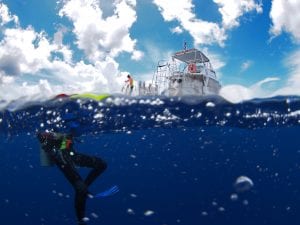 Keep Swimming With a Private SCUBA Guide…
Keep Swimming With a Private SCUBA Guide…Choosing the Dreaming Sea Divers team as your private diving tour guides will not lead to your disappointment. Need even more reasons to go with Dreaming Sea Divers?
The supportive and knowledgeable diving instructors and the manner in which they have designed their private guided tours make all the difference. Has it been a while since you went diving? What about if you have some physical challenges that make it difficult to dive on your own or without someone who is trained? Not a problem - John and the Dream Team are there for you. Going diving with your group for a special occasion? Just want to practice your technique to get better? Right on! Dreaming Sea Divers designed their services for these types of needs. The team even offers private shopping guide services for their clients to help them select and learn about the perfect type of diving gear they want or are looking for!
You’ve Reached The Bottom! Time To Get Neutral.
At the end of the day, the best advantage of hiring a West Palm Beach private dive guide through Dreaming Sea Divers is because it is fun and they can help you with your diving technique! With services personalized to you, no matter your experience or confidence level, John’s team at Dreaming Sea Divers is here for you.
Ready to book your private guide tour and dive under the sea? Contact John Phillips at Dreaming Sea Divers to learn more about the private dive guide experience.
While Florida is known for its stunning beaches, blue waters and streets lined with palm trees, West Palm Beach diving is some of the best in the state thanks to its amazing underwater views and short proximity to the Gulf Stream. There’s excitement to be found in the clear blue waters for divers of any skill level.
Blue Heron Bridge is great for entry level divers because you can follow along the 800-foot-long Snorkel Trail and discover treasures like sunken boats and shark statues. It’s part of the Phil Foster Park, a world renowned protected area for underwater photography. Luckily, the manatees, pipefish, seahorses, frogfish and bumblebee shrimp in the water aren’t camera shy!
The deepest spot at the Park is seven meters, or 23 feet, so decompression limits aren’t a concern. SCUBA diving lessons in West Palm Beach will prepare you for situations like this!
We also recommend checking out the world famous Breakers Reef, a two-mile-long reef that’s accessible from Palm Beach Inlet. Soft corals, barrel sponges, sea turtles, eels and what is left of a King Neptune statue are just some of the things you find after diving down about 45-60 feet. This site is covered with huge barrel sponges, moray eels, resident lemon sharks, sometimes a Goliath grouper, giant and bulb anemones with gorgeous tiny Spotted Cleaner Shrimp, and normally Turtles! Manta Rays, Hammerhead Sharks, Sawfish, Octopi, Guitar Fish, and Caribbean Reef Squid are also not out of the question on this site!
Juno Ledge is perfect for anyone looking to see a wide variety of marine life. Get face to face with sea turtles, colorful corals and sponges in shades of burgundy, lavender or orange, and share the sites with sharks and eels. If you’re lucky, a school of goliath groupers might be in view. These gentle giants can weigh up to 800 pounds and are the same size as a Volkswagen Beetle!
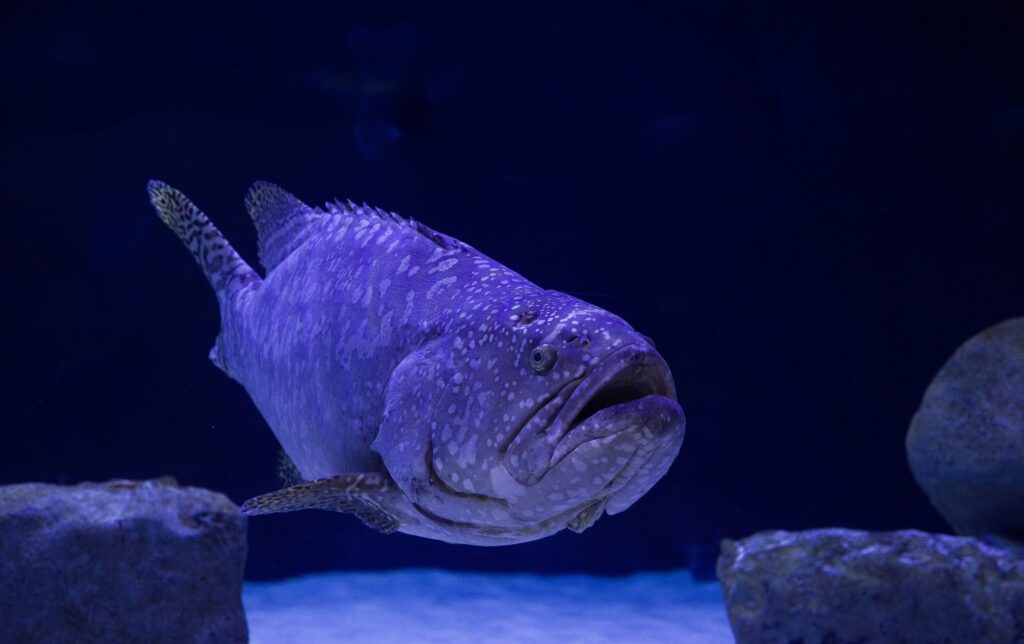
The infamous ledge starts at 68 feet on top of the reef and extends 20 feet down to the sand’s depth of 92 feet.
Shark Canyon is part of the Cathedral reefs and is home to Caribbean Reef sharks in fairly deep waters in Juno Ledge. They aren’t shy about approaching divers either and usually turn away when about three feet from a group.
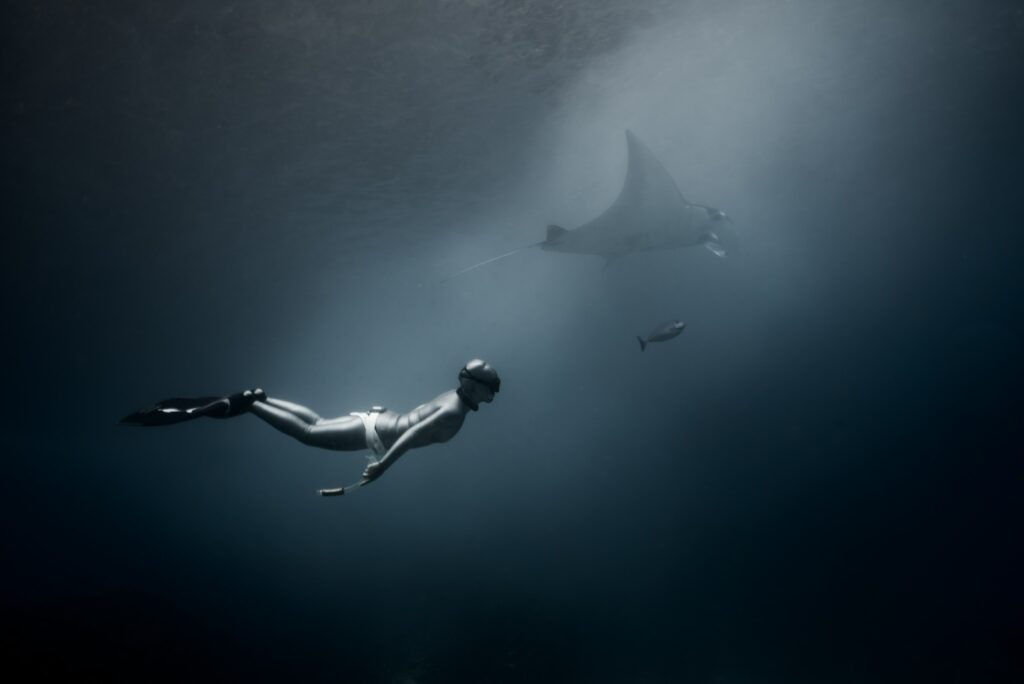
Jolly Jacks is worth a visit because its formation consists of extremely deep undercuts and massive erosion as part of a gradual slope down a 12-foot ledge. Tropicals, sea turtles, moray eels and rays inhabit this area. All in all, if you’re in search of marine life combined with unique ledges and curves, then this area is perfect for you! This is a great site for hunting as well as hogfish, snapper, and grouper tend to hang out here, among other game fish and lobsters.
If you’re curious about drift diving or experience in the practice, heading to nearby Jupiter to experience its ripping currents is a fun time. Diving conditions in Jupiter have an average water temperature of 79 degrees Fahrenheit and the best time to dive is during the summer due to calm winds and clear waters. But as the warmest region in the Sunshine State, you can’t go wrong any time of the year! Another added bonus is the city’s proximity to the Gulf Stream, or the major ocean current seen as the lifeline for all scuba diving adventures in South Florida.
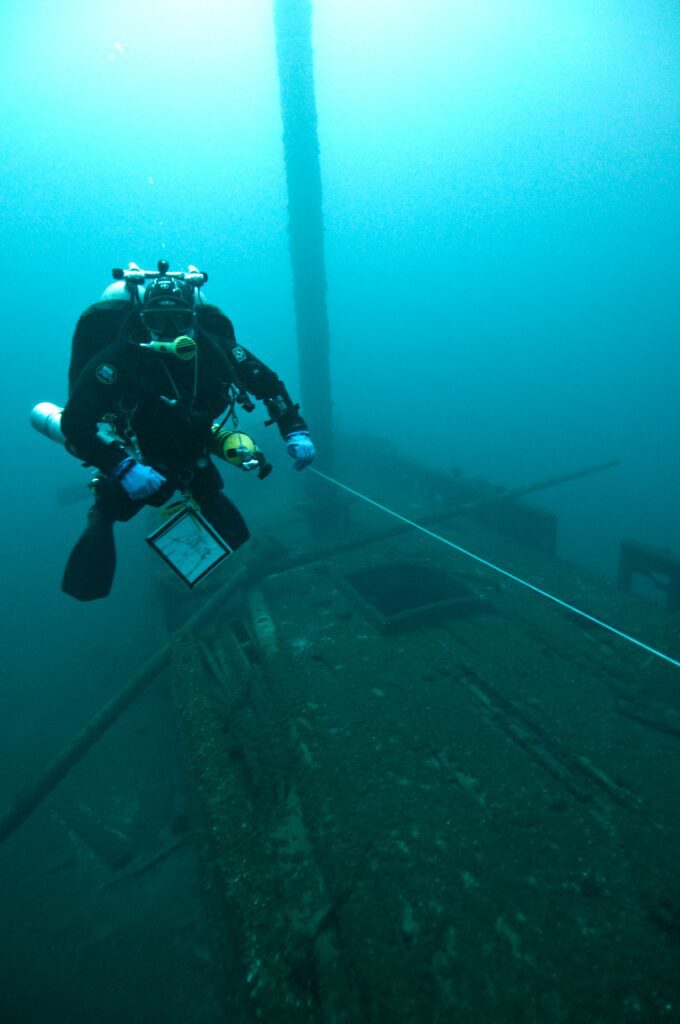
Jupiter is best for more advanced divers as opposed to newer ones, and typically we recommend at least having a nitrox certification to fully enjoy the depths of the water where the best wrecks and reefs are.
Sign up for a private class with John and get your SCUBA certification in West Palm Beach today. This location is an astonishing and beautiful area to learn to dive in. In these classes, you can learn from a Discover SCUBA Diving or Try Diving course, all the way up to the professional ratings of Divemaster. Experience an engaging, fun, and safe learning experience today with Dreaming Sea Divers.
Book Your West Palm Beach SCUBA Lessons
Ready to become a Divemaster? It’s a serious question and will often lead to other inquiries about the industry or its courses. In this blog, we’ll dive into a couple of common questions about what to expect.
As a Divemaster, you are responsible for organizing and leading recreational dives and supervising as a dive guide. You can also teach dive courses and complete scuba reviews.
Another opportunity as a Divemaster is that you are now qualified for the responsibility of overseeing scuba diving operations for salvages or work at a resort.
The Divemaster SCUBA diving lessons are typically very flexible and depending on one’s schedule, can be achieved in three weeks or up to six months. We have trained experts who will be able to provide one-on-one support during the lessons. Expect to learn more about theoretical concepts in the course ranging from the physics of diving to decompression theory and first aid.
When it comes to diving equipment, you want the best tools for the job. Must-haves like a snorkel, mask and dive computers should be at the top of your list. Some other diving equipment you may need to become a divemaster include:
The conditions when trying to achieve a SCUBA certification are some of the most challenging you’ll face. This is because divemasters want to help you flourish in any kind of water, so you can do the same to help your students.
Training typically occurs in a pool or in a confined area of water such as a very calm beach.
Make sure you know how to perform tasks like setting up gear, entering or exiting the water, basic underwater navigation techniques, safety and buoyancy control in any kind of water conditions.
In order to become a divemaster, you need to be 18 years or older, have at least forty (40) dives logged and successfully completed, a signed medical statement from your doctor within the past year before the course, and SCUBA certifications in Rescue Diver and Emergency First Responder courses.
Get ready to be tested on treading water for 15 minutes straight, swimming a distance of 400 meters and snorkeling for 800, and then tow a tired diver for 100 meters. Lastly, make sure you and a buddy know how to do a complete gear swap before obtaining your SCUBA diving certification.
Learning about theoretical dive situations and information will be a breeze if you’re motivated to participate and pass the test as well.
Time management, organization, good communication and patience are very important when it comes to becoming a good Divemaster. Overall, if you strive to be a role model as a dive professional then you will certainly inspire students and help them make progress.
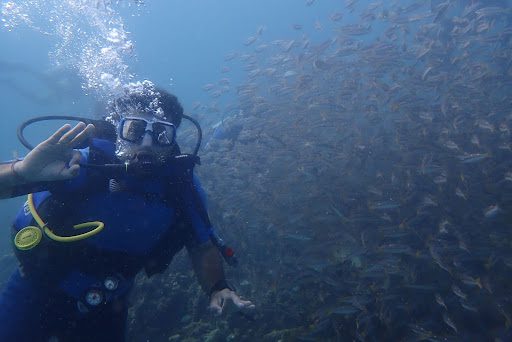
The founder and Divemaster of Dreaming Sea Divers, John Phillips, has been passionate about SCUBA diving since he first took his Open Water Course in 2014. His experience also includes working on dive boats, fill stations and retail stores, so he’s learned a lot and is ready to assist others with fulfilling their dreams of working in the diving industry. John also is excited to meet many serious divers and turn their hobby into an enriching, fulfilling career. After all, who wouldn’t want a career that blends their passions with the ability to teach and earn an income from it all?
Dreaming Sea Divers can help you achieve your diving goals for any lifestyle, so click here to learn more about our programs.
The world is slowly opening back up after the pandemic and more people are eager to try new things in new places. Learning to dive is one of them and so SCUBA lessons are the first step. Not all instructors are created the same, however. It takes a lot of patience and effort but once you’ve become certified, it’s easy to become part of a great community that will open a lot of different avenues for you. The demand for SCUBA diving instructors will lead to so many opportunities for Private Instructors and at Dive Shops across North America and the Caribbean. Here at Dreaming Sea Divers, the courses to become an instructor are only offered through SDI (Scuba Diving International). To find out more, click here to read our previous blog.
As a SCUBA diving instructor, the ability to focus on setting high standards, solving problems, logistics and time management is just as important as making sure everyone has a great time. SCUBA diving instructors are truly a jack of all trades and must be up to the task of juggling the different sciences that go into the sport.

Investing in SCUBA instructor training can help you with ways to teach and helps you improve your own personal standards to learn theoretical and practical knowledge about diving. Having students and instructors on the same page is always important for safe practices in the recreational sport. You might even learn something that was overlooked or rushed through quickly during one of your courses.
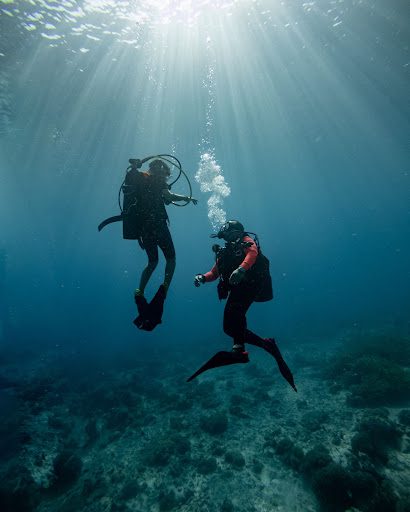
Like most jobs, it isn’t always a breeze. There’s an additional risk to SCUBA diving lessons and making sure your students are safe due to the unpredictability that the water has. Quick thinking is key in case students are frightened or diving conditions aren’t ideal. If you are training divers for a commercial or technical diving career, you will likely earn more. This is because a more specialized skill set is required, along with the use of specialized equipment. The Recreational SCUBA Instructor Course (Open Water SCUBA Instructor) is a prerequisite to teach those advanced level courses.
Also, there’s no need to think that teaching beginners and open-water courses is your only job. There’s plenty of job opportunities in recreational diving, in addition to industries and niches.
When thinking about a good way to travel, being a SCUBA diver is one of the best jobs for fulfilling that goal because you’re living out your passion each day. All in all, it’s similar to other professional outdoor-based careers because you spend time outside, find work in remote areas and promote the sport you love. If you’re looking for SCUBA diving lessons in West Palm Beach, Dreaming Sea Divers can help you get out in the water with a private SCUBA instructor.
Dreaming Sea Divers will be running an Instructor Development Course (IDC) from October 16-22, with an Instructor Evaluation Course from October 23-24. You’ll definitely be on the right track here to become an instructor yourself!
West Palm Beach has a lot to offer underwater and the proximity to the Gulf Stream is overall a beautiful and breathtaking area to dive in. Learn more about John of Dreaming Sea Divers here and if you live in South Florida, SCUBA diving certifications are available through our instructor courses here.
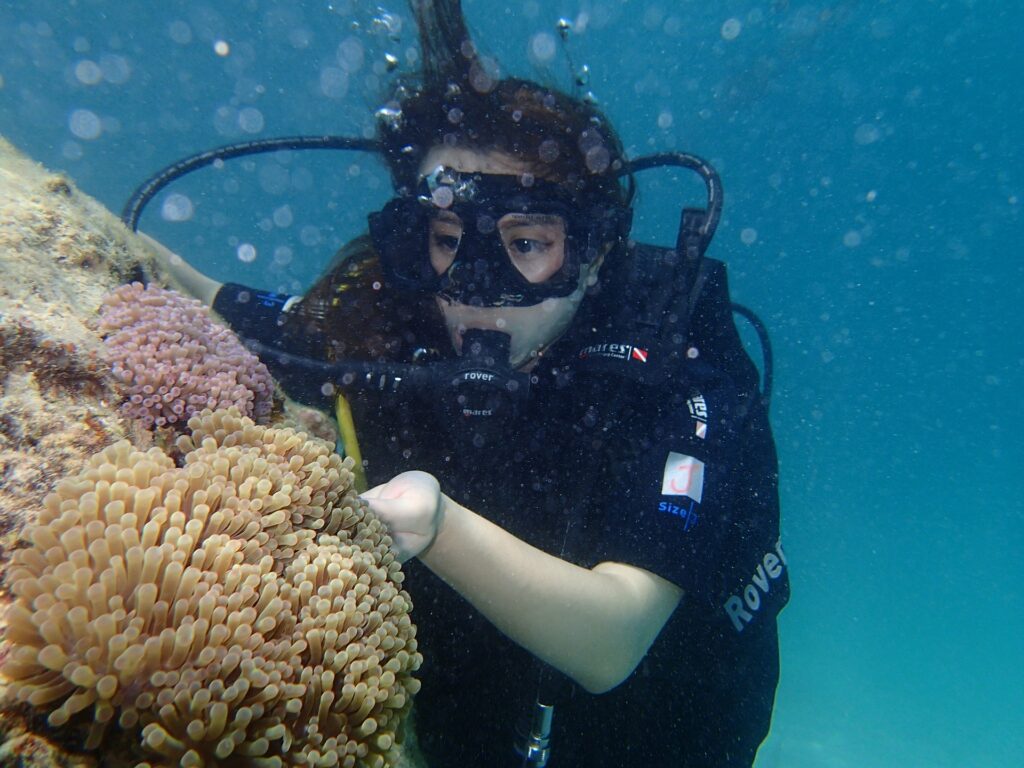
Are you interested in learning to dive but don’t know where to start? While there are a variety of certification agencies for new divers to try, most schools teach the same standardized skill when learning to dive.
Keep in mind, the similar approach used by these diving agencies may cause you to consider other factors. You may discover it is more important to focus on how comfortable you feel with your diving instructor. After that you may decide to compare other factors including price and location.
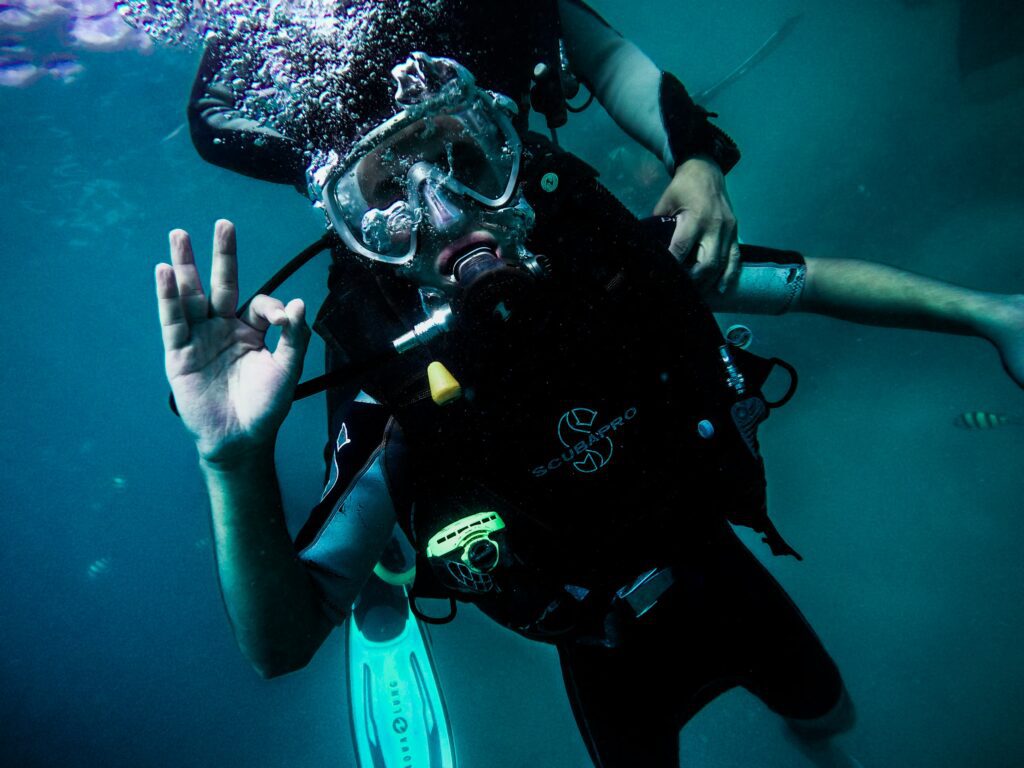
SDI was started in 1998 out of its sister company TDI. The only SCUBA certification that requires students to be taught with modern dive computers, there’s an emphasis on practical skills learned in the pool and open water.
Dreaming Sea Divers own John Phillips is a Course Director for SDI. Key points about SDI:
PADI is another diving certification agency that emphasizes the theory and practical skills of diving. Founded in 1966, PADI presently maintains over 6,000 diving schools around the world. Their extensive reach has allowed them to license over 60 percent of recreational divers with a PADI certification. PADI also gives you the option of beginning your educational experience online with courses that offer flexibility for future divers needing to grasp the basics.
4 E Philosophy
Project AWARE
Compared to other dive agencies, this organization stands out because of their environmental efforts using their non-profit organization Project AWARE. PADI works hard to organize beach cleanups, promote plastic awareness campaigns, and participate in shark protection through their marine conservation efforts. PADI believes conservation efforts are crucial to the future of diving.
NAUI was established in 1959 and currently holds the title of the oldest diving agency around. A non-profit diving organization, NAUI focuses on recreational and technical training for those learning to dive. This organization is recognized for its innovative approach when training divers and is the second-biggest agency based on the number of certifications delivered to the diving community.
Fun Fact: NAUI has trained and educated divers working for big names like Disney World Resort, the United States Navy Seal Teams and NASA’s Neutral Buoyancy Laboratory in Huston, Texas.
SSI was established in the 1970s and uses professional dive centers and resorts to attract future divers. This diving school is a retail-based organization, so they mostly attract tourists interested in freediving, snorkeling, swimming or scuba diving. SSI has 30 service centers that use uncompromising standards and focused methodology when teaching you how to dive.
Scuba Diving Diamond
This organization promotes the scuba diving diamond focused on four main points. These include:
There isn’t necessarily an agency that offers a “better” approach when certifying new divers. Diving organizations have more similarities than differences and follow the same global standards. Each diving agency teaches the core skills necessary to learn to dive.
Furthermore, all students receive the same certification capabilities around the world. The likeness of each agency means new divers should focus on the experience provided by their dive instructors. Who you learn to dive from is one of the most important factors to consider. Your diving instructor is the captain of your adventure. His energy can affect your experience, especially if the class size is too big or the instructor does not meet your needs. John Phillips offers a diving experience that puts safety first – so you can focus on enjoying exploring the wonders of the ocean.
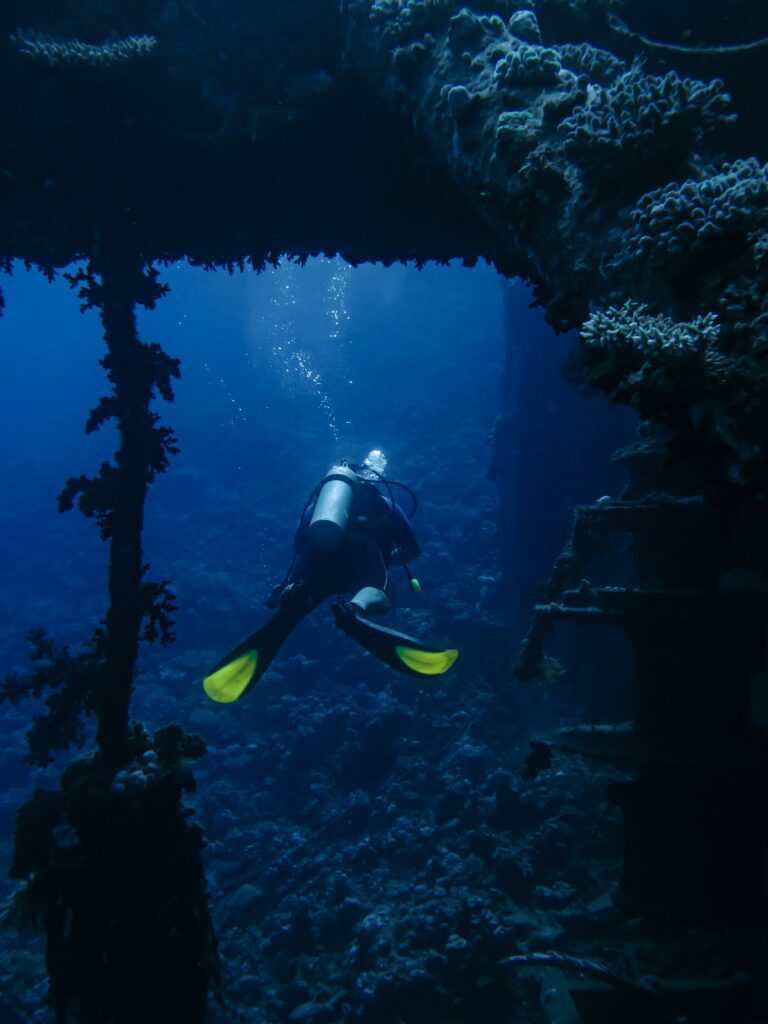
Dreaming Sea Divers gives you a chance to do something different this Valentine's Day. Connect on a deeper level by learning to dive with your significant other. Explore the mysticism of the underwater world and find a new hobby for you both to take up this New Year.
There are many benefits to hiring a private dive guide and our mission is to make your day of diving a magical experience! Book your next adventure with us here.
You’ve probably heard that 71 percent of the earth is covered in water. Did you know that the ocean holds about 96 percent of it? SCUBA diving has grown in popularity and accessibility since many people can readily explore the ocean all around the world. Whether you are on vacation or live near the sea, this fun, non-competitive underwater sport is ready to take you on an adventure.
Some people may not know there are a variety of SCUBA diving courses available to them. You can either learn to dive from or maximize the day by diving from a boat, sometimes reaching harder to get to spots.
Here we go over the pros and cons of both SCUBA diving types so that you can choose the right venture for your first time:
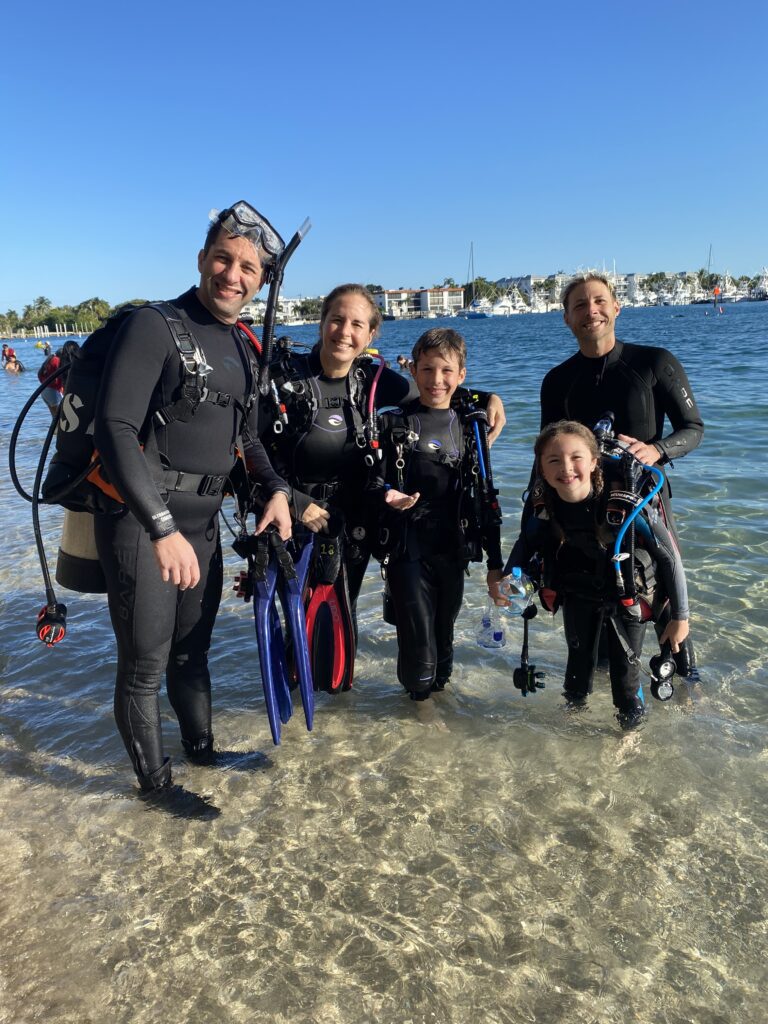
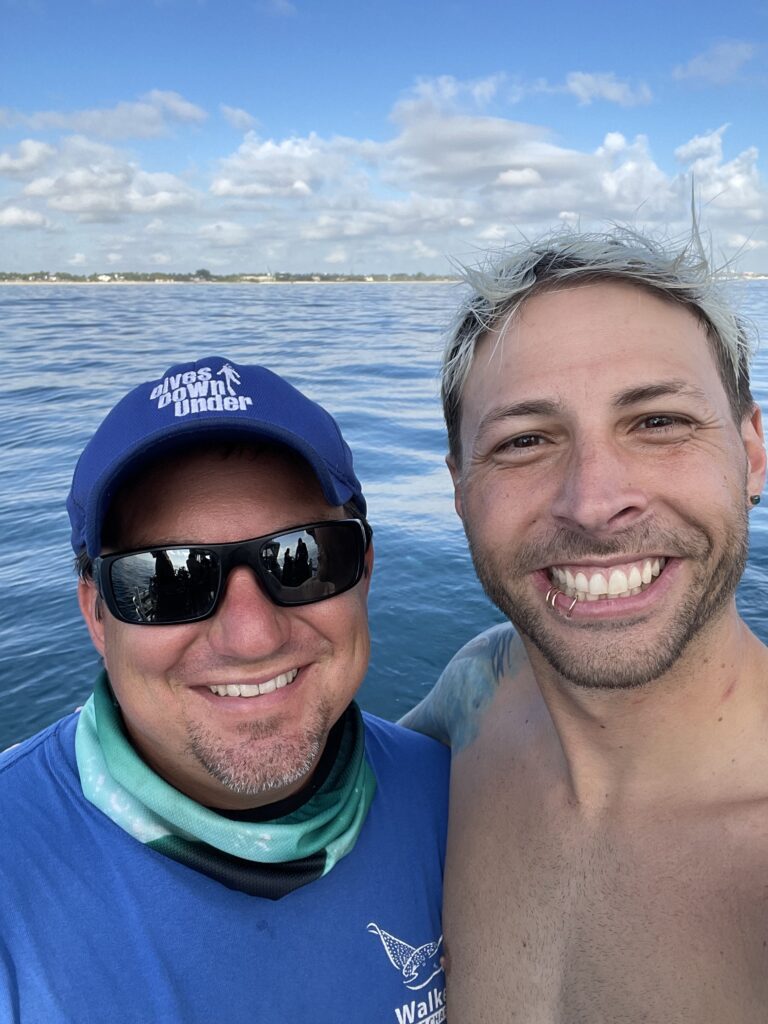
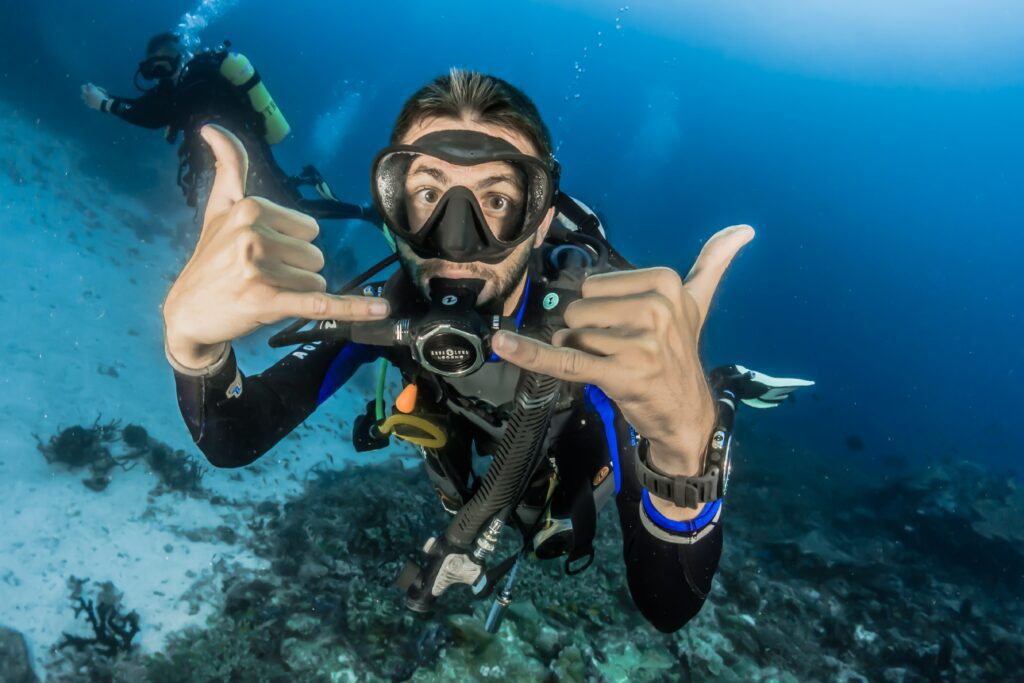
This list is a great way for you to decide what kind of diving is best for you after certification or perhaps during your courses. The pros and cons of shore diving in comparison to boat diving are ultimately relative to the individual experiencing the adventure. No matter what you’re looking for, Dreaming Sea Divers makes sure you have fun learning the fundamentals while exploring safely.
With most classes that we offer, Dreaming Sea Divers includes some shore diving and some boat diving so you get to learn for yourself which you like better and you can see first hand the pros and cons.
We created Dreaming Sea Drivers to make sure you become a confident SCUBA diver. We offer a series of courses tailored to supplement your diving knowledge. Whether you are visiting West Palm Beach or a local to Florida, allow us to give you private SCUBA diving lessons or a private guide from shore or boat. Our goal is to give you an exciting and relaxing experience you'll never forget.
Contact us today to book your next SCUBA diving classes!
If you’re an advanced scuba diver and have yet to take your rescue diver course, now’s the perfect time to change that. After reaching the level of Advanced Open Water diver, you may be wondering what your next big challenge could be, and this is it. The Rescue Diver Course isn’t just challenging though. It’s also a rewarding and fun experience that many advanced divers consider to be their absolute favorite course.
So, if you’re looking to continue your diving education, grow your confidence as a diver, and want to help others in the process, then consider getting your Rescue Diver Certification with a certified SCUBA instructor.
The rescue diver certification is part of the advanced scuba diver courses and is obtained by divers who have proven their diving skills are developed enough to help others in need of assistance. The rescue scuba diver course teaches divers different techniques to avoid and manage problems in the water with confidence. Once you’ve completed the course, you’ll be able to identify potential hurdles, perform dive emergency protocols, and provide first aid and rescue methods to those in need.
Some of the topics included in the rescue diver course include:
This class focuses on preparing you to be able to help yourself in the water, your buddy and fellow divers under and above the water if troubles arise. Eventually, in your diving career, you will need to perform a rescue. It could be as simple as a tired diver tow or reminding someone to inflate their BCD on the surface. This course will build habits so that when the time arises, you know what to do and how to do it to help the other diver and protect yourself in the process. You will also learn some invaluable self-rescue techniques and refresh your basic dive skills.
The key to a successful rescue course is developing your confidence as a diver. It will significantly help you in a difficult or stressful situation.
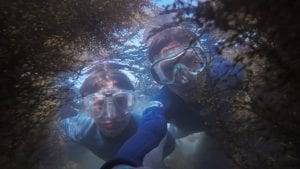
Rescues, as previously mentioned, sometimes involve giving a small amount of help to a diver that provides a big impact to their safety and comfort. Sometimes, however, divers will panic and not respond to instructions. It is our instinct to try to help someone in need but without proper training, it is possible to put yourself in harm's way and get yourself hurt while you are trying to provide aid to another diver. The Rescue Course will cover basically every scenario you may come across and teach you different ways to defensively help the other diver and get you both to safety.
The course starts with self-rescue techniques, reminding you how to remove cramps on yourself and the importance of becoming positively buoyant on the surface, for instance. We then focus on rescues from shore or the boat when it is not necessary to enter the water to help. We will then go on a dive and show you ways to deal with distress and panic underwater. Lastly, we deal with the worst-case scenario, finding a diver unconscious and not breathing underwater. It is a rigorous, exciting, and truly rewarding course. Parts of it will challenge you. Parts of it will remind you of things you've forgotten from previous courses.
Once everything in diving has become a habit to you, you’re ready to start your rescue diver certification. These habits include regularly checking your air and no decompression time without being reminded, and effortless buoyancy that you don’t have to give much thought to. Your pre-dive checks also need to be all habit and thoughtful.
Once you’ve developed confidence as a diver and have solid experience under your belt, you can enroll in the rescue diver course, I promise you won’t regret it!
Everyone should take the Open Water, Advanced Open Water, and Rescue Course. We go over some rescue techniques in the Open Water class but all of the skills covered in the Rescue Diver course cannot be covered in the OW and AOW courses. Kids, adults, men, women, people who dive once a year, and people who dive every week should all be trained in rescue not just for safety purposes, but for peace of mind as well.
Eventually, you will use your rescue skills, even if it isn’t in a dive setting. But, the more often you dive, the more often you will use the skills. It is imperative that you're trained to do them properly so as not to hurt yourself or do further harm to the other diver.
You may start the Rescue Diver Course immediately after completing an Advanced Open Water certification or as an Open Water certified diver with 40 logged dives.
Interested in expanding your dive abilities? Then connect with John at Dreaming Sea Divers today to get your rescue scuba diver certification! As a certified SDI and PADI Instructor with thousands of recorded dives on his record, John is beyond passionate about helping others develop and embrace their love for diving. He emphasizes the importance of safety and fun in his courses and is always willing to help a diver improve their skills.
See how John can help you become a better diver today!
When it comes to SCUBA gear, you can either rent or purchase your own equipment. Each option has its pros and cons, but owning your own SCUBA gear is typically more practical for avid or regular SCUBA divers. Not only is cleanliness a non-issue when you purchase your own gear, but it could also save you money and give you more time under the water. Many SCUBA divers prefer to have their own equipment, and it’s easy to see why. To learn about all of the benefits of owning your own SCUBA gear, take a look below.
One of the first things you should consider when deciding if you want to purchase your own gear or continue renting it is how often you plan on going SCUBA diving. Avid divers who plan on taking several SCUBA trips a year are going to significantly benefit from having their own gear. Though the initial costs of SCUBA diving are steep, you won’t be paying for these things every time you dive. Most dive equipment lasts for decades and can be purchased second-hand from dive shops or other dive enthusiasts for a lesser cost.
If you plan on diving more than once or twice a year (and you should!), then purchasing your own SCUBA gear is going to allow you to have the best experience and will save you money in the long run. The cost of renting all the SCUBA equipment you need for a day trip can range between $50-$100. This amount quickly adds up and the constant re-renting means you won’t have any gear of your own to bring home, personalize (put everything right where you want it, download your dive log), and take care of.
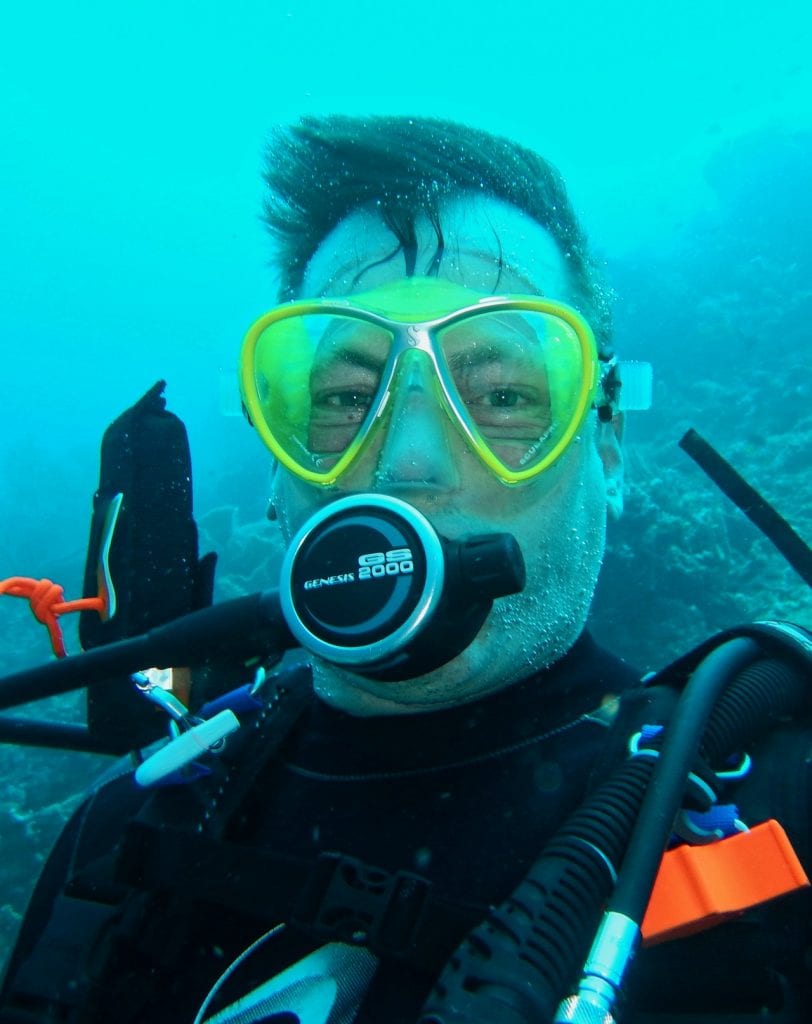 Equipment That Fits Your Needs
Equipment That Fits Your NeedsThe two most basic pieces of SCUBA gear you’ll be required to use with each dive are masks and fins. Both of these pieces are essential to your dive and having ill-fitting masks or fins often results in leaking and can be a huge distraction. Your mask should fit snug against your face so that the suction locks in the air and keeps out water. It should not be the case that you have to tighten it as tight as it goes to keep water out of it. And fins should be all about fit and comfort. This will help prevent unwanted distractions and overworking your muscles.
Another piece of SCUBA gear that is extremely beneficial to own is a wet suit. Wetsuits are intended to keep you warm under the water, but this only works if the suit fits properly. If the fit isn’t just right then you will have water leaking in, making you cold and stopping the dive early. Because of this, it’s crucial that your wetsuit fits you snuggly and doesn’t let in any water. Also, most dive shops don’t offer different thicknesses of wetsuits, only thinner suits that can be very limiting and unusable in cold water conditions.
One of the biggest benefits of purchasing your own SCUBA gear is getting to familiarize yourself with how the equipment works. It’s so important to understand exactly how your gear functions and renting can lead to confusion that may be potentially dangerous in certain situations.
Take, for instance, a dive computer. A Dive Computer’s job is to get you safely back to the surface. If you do not understand where all of the information is or why it is alarming you of something, then it is not helping you. Having one of your own means that there will be no questions about how the device works and you will be able to log every dive you go on. You can set the specific alarms that you want and turn off those that you do not. You can easily set it for the appropriate Enriched Air Nitrox mix because you’ll learn how to do so the same way every time. And, as mentioned before, you can download your dive profiles and log your dives digitally. There are many different makes and models of dive computers and they can take a while to get familiar with. Not only does owning your own allow you to keep track of your dives, but it also saves you time when it comes to getting set up for diving.
Other SCUBA devices that are commonly used and worth purchasing for yourself are regulators and buoyancy control devices (BCD). A middle-of-the-road or higher-end regulator will breathe better than a lower-end one, no matter how deep you go within the recreational limits. BCD’s are not all made the same and do not all offer the same features. Some regulators offer better corrosion resistance than others and some are heavier which makes traveling with them less convenient. The same goes for BCD’s and some are more comfortable than others. These two devices can significantly improve your diving experience and are typically better maintained in your own home with normal use as opposed to heavy use as in being rented every day and dived much more than 100 times a year! BCDs are also customizable and being able to regulate the settings for you and keeping them there can save a great deal of time and hassle. You will put everything where you want every time and you will access it easier. Everything in its place and a place for everything.
One of the main reasons divers purchase their own gear is for maintaining the cleanliness and functionality of the equipment. Owning your own SCUBA gear means that no one besides you is using the equipment. You won’t have to worry about germs from other divers being on your equipment and you know exactly where it’s all been.
You can also rest assured with your own gear that it’s been maintained to your standards. If a regulator is not maintained properly, it can pose a serious threat to the diver. When you purchase and maintain your own gear, you’re able to monitor the functionality of the device better and keep it in fully working condition.
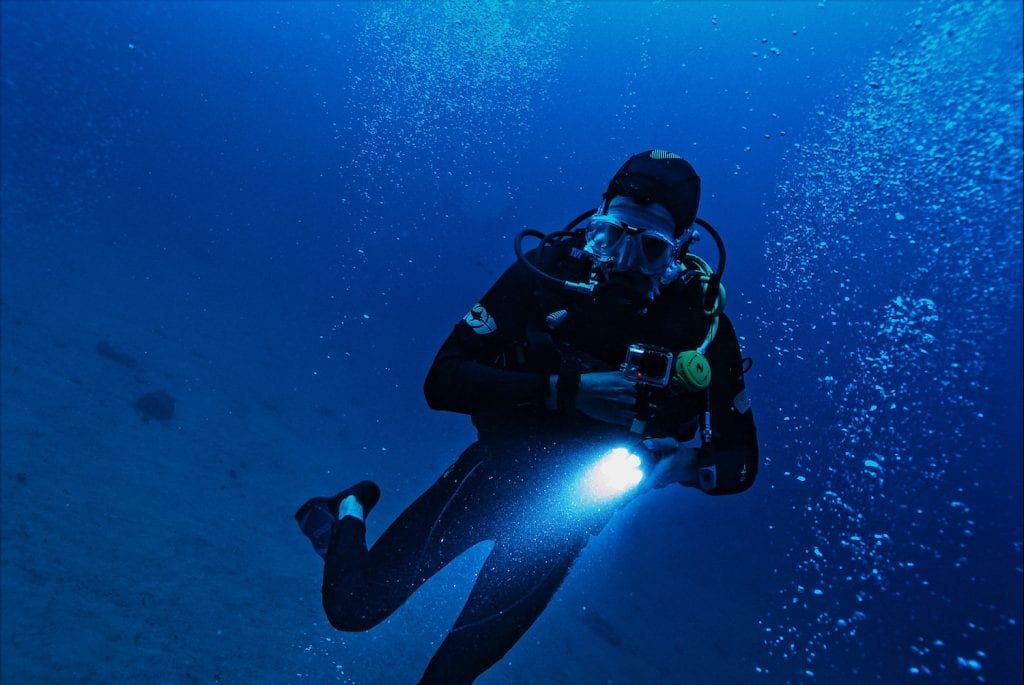
There are several dive accessories that are available for purchase, but not all of them are available to rent. Some of the most popular items are cameras, flashlights, signaling devices, and hunting gear. These items can be purchased and used in several dive trips which makes them worth spending the money on.
There are quite a few pieces of equipment you’ll need for SCUBA diving and if you plan on continuing this hobby or pursuing it as a professional, then it’s definitely in your best interest to purchase your own equipment. There are several benefits to owning your own SCUBA gear and we hope you’ll consider taking the plunge and getting your own equipment.
Connect with John at Dreaming Sea Divers today to get your SCUBA diver certification or if you have any questions about gear! He emphasizes the importance of safety in his courses and is always willing to help new divers improve their skills. See how John can help you become a certified diver today! He is also a huge gear head and has tried many different makes, models, and styles of equipment and loves talking about equipment and helping divers find the perfect kit for them!
Every day, thousands of people make the decision to take up scuba diving. If you are one of them, congratulations! Diving opens a lifestyle of adventure and new experiences unlike anything in our terrestrial world. You’ll feel weightlessness and interact with marine life of all shapes and sizes. Diving is exciting to be sure, but if you haven’t yet taken the plunge, you probably have questions and might even be a little apprehensive. To help make your transition from land to sea a little more comfortable, let’s explore what it’s like to “get certified.”
Open Water Diver is the introduction certification level that allows divers to dive independently—meaning not under the direct supervision of a qualified, active status diving instructor. Generally speaking, being “certified” means having successfully completed this level of diver training.
Open Water divers are certified to a depth of 60’ in saltwater and in conditions similar to those you were trained in.
You might be surprised to learn there are dozens—maybe hundreds—of certification levels including advanced diving options and countless specialty certifications like wreck diving and underwater photography.
After Open Water, Advanced Diver training is the typical next step. As an Advanced Open Water Diver, you’ll be introduced to more diving experiences including underwater navigation and the opportunity to explore depths to 100 feet.

While it is great to learn about future training options, you probably have questions about what your Open Water Diver Course will be like. Common questions among future Open Water Diver students are: Do I have to take my mask off? Do you need to be able to swim to scuba dive? Is it expensive?
Of course, there are countless questions would-be divers ask, but let’s examine these a bit. To begin, mask skills, i.e. removing and replacing your mask are important to scuba diving. A lot of divers fear removing their masks but are surprised to learn it is an easy skill to master.
First off, removing your mask underwater is the same sensation as ordinary swimming without a mask. It’s just water on your face. Something about breathing from a scuba regulator makes it seem more serious, but it really isn’t.
Even the slightest amount of exhalation pressure through your nose will keep you from sucking in water, so water up your nose isn’t a problem after minimal practice. For most divers, it’s never a problem. You can breathe normally without your mask. The weirdest part is that, while SCUBA diving, we only breathe in through our mouth which takes a minute or two to get used to. Once you have that down, clearing and even removing and then swimming without a mask on with the gear is simple.
Clearing your mask simply requires exhaling through your nose while you gradually tilt your head upward. Some masks hold so little water that even the head tilt isn’t necessary. Like most diving skills, you’ll quickly find just the right combination tilt and exhalation volume to clear your mask nearly instantly. Some students don’t believe that adding air to a mask will replace the water inside but it works!
The important message here is, don’t freak out about taking your mask off! It’s no big deal. Promise!
You will need to pass a simple proficiency test, which includes swimming 200 yards freestyle OR 300 yards with your mask, snorkel, and fins. To clarify, “freestyle” in this case means swim that distance pretty much any way you can without the aid of supplemental floatation. In other words, no blow-up ducky or water wings will be allowed.
Some divers choose the mask, snorkel & fins option and just do laps at a manageable pace. The exact number of laps depends on the pool you train in. In any case, it isn’t too much of a challenge for most people. If you set a world record lap time, your instructor won’t be able to verify it to the powers that be, so just go slow!
In addition to the swim, you’ll also be asked to tread water for 10 minutes. The “tread” is another frequent panic point, but seriously, you’ll only be treading water for ten minutes. You’d do it without a second thought if it weren’t a class.
In any case, that’s it for the swimming assessments. Not so hard, right? You don’t need to be able to swim, just snorkel and tread water.
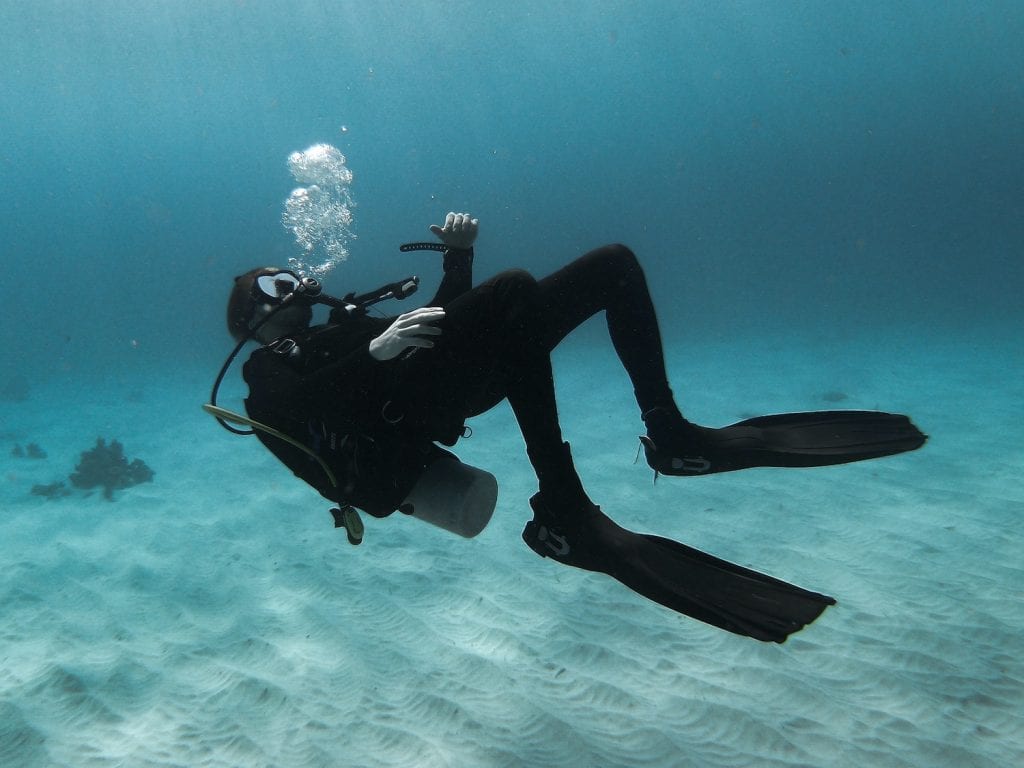
Learning to scuba dive requires access to gear and a minimum level of training (Open Water Scuba Certification). Expensive is a subjective term, but for most who wish to learn to dive, the cost isn’t difficult to manage. Diving equipment can be rented and budget-minded divers often purchase one piece of gear at a time.
In most locations, diving instruction isn’t overly costly. Open Water Scuba Diver is a thorough course that you’ll only take once, so make sure you are comfortable with your instructor. Saving a few pennies in exchange for a miserable experience isn’t worth it.
In most cases, the “resort courses” you find in popular tourist locales are rushed and taught to the maximum ratios of student to instructor. These are typically more expensive than you’ll find where you live as well. If you are planning your first diving vacation, we recommend you learn to dive locally even if you’ll be renting gear onsite. You’ll enjoy better training and spend your days diving rather than in a class.
People new to diving often worry about mask and regulator skills, fixating on the things they fear. Don’t. You’ll find that it just takes a little practice to easily master them.
Diving is a community. You’ll be welcomed into our diving lifestyle with open arms. During your open water course, you’ll likely make lifelong friends and change your own view of the world around you. And you’ll probably never plan a vacation quite the same way.
If you’re still not sure, call us to schedule what some call a “try dive.” Try dive isn’t the best term, however, since you’ll have an opportunity to learn some of the skills you’ll master during your Open Water Diver course.
Whether you are ready to fearlessly charge into your certification course or are apprehensive about the unknown, diving offers a lifetime of real adventures. Ask us anything and we’ll be open and honest with you about what you should expect!
SCUBA diving can be intimidating to beginners but it’s quickly become one of the most popular recreational outdoor activities across the world. Getting started is much easier than you may think, and working with an experienced dive instructor will help you feel more confident and comfortable during your first few dives. There are some vital things to know about SCUBA diving and it’s important to have some idea of what you’re signing yourself up for. Take a look at our beginner’s guide to SCUBA diving and see for yourself why so many have taken up this popular outdoor hobby.
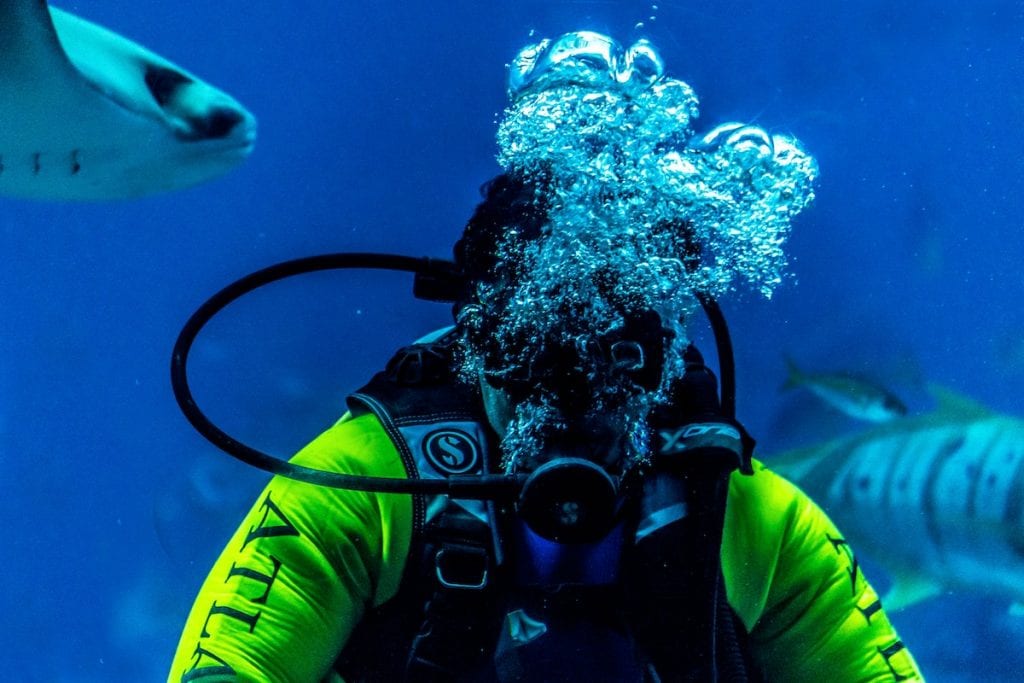 What is SCUBA diving?
What is SCUBA diving?SCUBA stands for self-contained underwater breathing apparatus which is a mechanism used in diving to allow us to breathe underwater and maneuver. SCUBA gear allows you to dive and breathe completely independently of surface air, meaning there’s no need to come to the surface to catch your breath. This gives you greater independence and more freedom of movement while also permitting you to stay underwater for longer periods of time compared to Freediving. (Refer to the blog about the differences between Freediving and SCUBA Diving for more info!)
SCUBA diving can be done recreationally and professionally. About 1 million people across the world are recorded getting their SCUBA certification each year. And there are hundreds of diving careers to choose from including becoming a dive instructor, dive travel leader, naval diver, or hazmat cleanup diver to name a few.
Though there are risks to just about any outdoor activity, SCUBA diving is considered to be a low-risk activity. In comparison, snowboarding, bowling, fishing, and volleyball lead to more Emergency Room admissions than SCUBA diving each year. As long as you utilize safe diving practices and remember the tips and tricks you learn in your Open Water SCUBA Diver Course and subsequent courses depending on your environment, you should have nothing to worry about. The most common medical concerns associated with diving are sunburns, seasickness, and dehydration - which are all easily preventable.
The minimum age requirement for the Junior Open Water SCUBA diving certification in most of the U.S. is 10 years old. Furthermore, anyone under the age of 12 will need to be accompanied by a guardian or guide at all times. This is to ensure the safety and comfort of children as well as their families. Children as young as 8 years old can try it in a pool with a professional!
The bends, which is also known as decompression sickness, refers to the way your body reacts to a rapid decrease in the pressure that surrounds you. This can refer to air or water pressure. In diving, the bends typically occur when nitrogen bubbles form in your system which can lead to blocked blood vessels. One of the first signs of decompression sickness is a tingly sensation that can be felt throughout your limbs. The bends typically result in joint pain felt throughout the body and in some cases could cause greater concerns. However, decompression sickness is quite rare and easily preventable by diving conservatively and following established guidelines that you learn and that your diving computer reminds you of.
It’s no secret that SCUBA diving is an expensive hobby to start up. From the equipment to taking diver’s courses, SCUBA diving can initially cost a substantial amount of money. There is quite a bit of gear and equipment used in SCUBA diving that needs to be purchased prior to taking your first course, and courses can range from $100 to $3000. Though the initial costs of SCUBA diving are steep, you won’t be paying for these things every time you dive. Most dive equipment lasts for decades and can be purchased second-hand from dive shops or other dive enthusiasts for a lesser cost. And once you become SCUBA certified, you’re certified for life.
Another expense that you should consider in regards to SCUBA diving is whether or not you live near a body of water that you can go diving in. The ocean isn’t the only place to dive, but it is the most popular, which for many, requires some sort of travel. Depending on your mode of transportation - whether you decide to fly, drive, or arrive by boat to your destination - this can add a significant price tag to SCUBA diving.
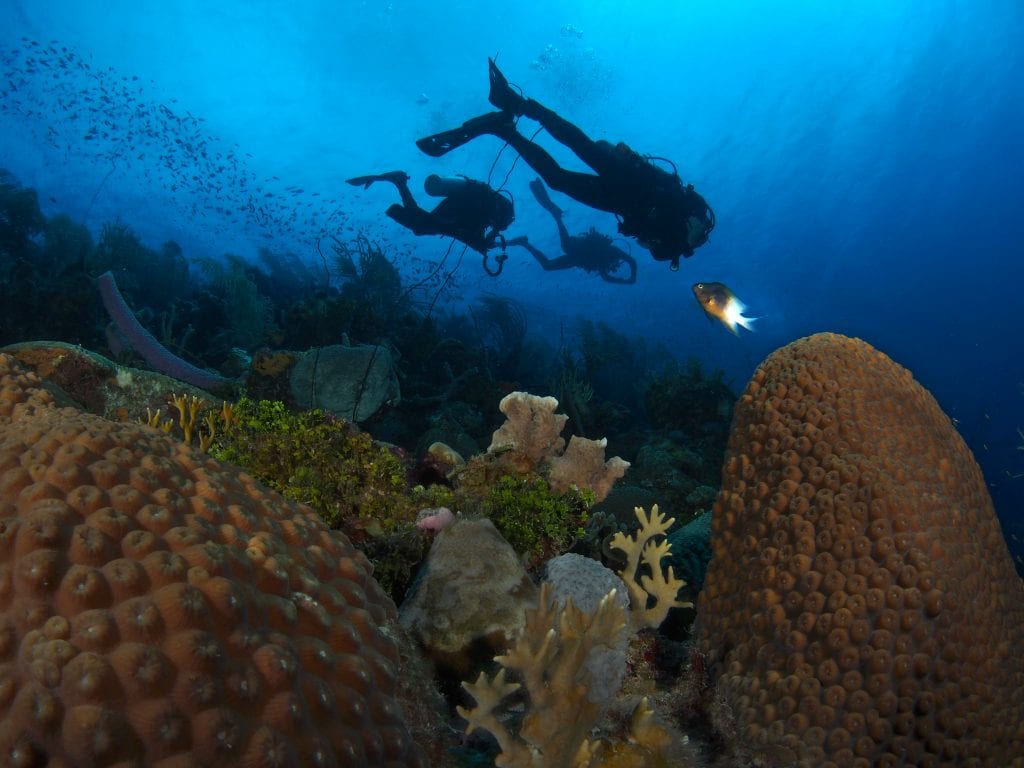
To get your SCUBA diving certification you’ll need to meet with a certified diving instructor. The courses which are offered under our Diving Fundamentals section will give you the basic diving skills and knowledge you need to begin your journey to becoming a qualified SCUBA diver. Along with supervised dives, you’ll be required to do your own independent studying of safety guidelines and specific diving techniques. You’ll also be required to learn the basic safety guidelines and skills that are needed to experience a variety of new things such as:
There are quite a few pieces of equipment you’ll need for SCUBA diving, but the most basic tools you’ll need are:
Keep in mind that the rental of almost all of this equipment is included in almost every class tuition that Dreaming Sea Divers offers!
Interested in expanding your dive abilities? Then connect with John at Dreaming Sea Divers today to get your SCUBA diver certification! He emphasizes the importance of safety in his courses and is always willing to help a new diver improve their skills. His goal is to make everyone confident, safe, and able to plan and execute dives with a qualified buddy. See how John can help you become a certified diver today!